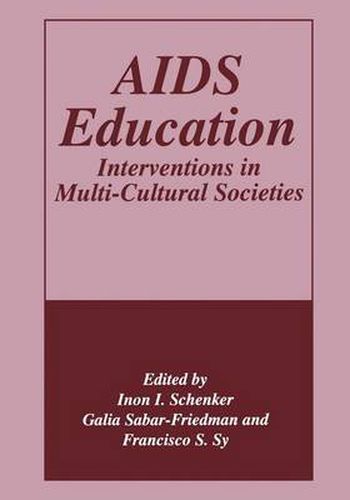Readings Newsletter
Become a Readings Member to make your shopping experience even easier.
Sign in or sign up for free!
You’re not far away from qualifying for FREE standard shipping within Australia
You’ve qualified for FREE standard shipping within Australia
The cart is loading…






This title is printed to order. This book may have been self-published. If so, we cannot guarantee the quality of the content. In the main most books will have gone through the editing process however some may not. We therefore suggest that you be aware of this before ordering this book. If in doubt check either the author or publisher’s details as we are unable to accept any returns unless they are faulty. Please contact us if you have any questions.
Sixteen years into the AIDS epidemic, our understandings of the virus, its transmis sion, modes of controlling blood banks and testing are relatively well established. In the last decade, we have also experienced an astonishing amount ofnew social science research ena bling us to better understand concepts like risk taking, gender-related prevention, women’s health, and youth psychology,just to mention a few. In almost every country in the world, efforts have been made to respond affirmatively to the challenge of stopping the further spread of HIVI AIDS. Educational interventions have ranged from re-inventing the wheel to innovative programs, using a variety of health educa tion methods. The field of evaluation research now provides us a better understanding of what works and what does not work. Issues relating to human rights, the relationship be tween the affected and the healthlmedical professional communities, and to the inequality in the delivery ofpreventive and educational services are becoming an important part ofthe de bates and discussions in the concerned societies.
$9.00 standard shipping within Australia
FREE standard shipping within Australia for orders over $100.00
Express & International shipping calculated at checkout
This title is printed to order. This book may have been self-published. If so, we cannot guarantee the quality of the content. In the main most books will have gone through the editing process however some may not. We therefore suggest that you be aware of this before ordering this book. If in doubt check either the author or publisher’s details as we are unable to accept any returns unless they are faulty. Please contact us if you have any questions.
Sixteen years into the AIDS epidemic, our understandings of the virus, its transmis sion, modes of controlling blood banks and testing are relatively well established. In the last decade, we have also experienced an astonishing amount ofnew social science research ena bling us to better understand concepts like risk taking, gender-related prevention, women’s health, and youth psychology,just to mention a few. In almost every country in the world, efforts have been made to respond affirmatively to the challenge of stopping the further spread of HIVI AIDS. Educational interventions have ranged from re-inventing the wheel to innovative programs, using a variety of health educa tion methods. The field of evaluation research now provides us a better understanding of what works and what does not work. Issues relating to human rights, the relationship be tween the affected and the healthlmedical professional communities, and to the inequality in the delivery ofpreventive and educational services are becoming an important part ofthe de bates and discussions in the concerned societies.